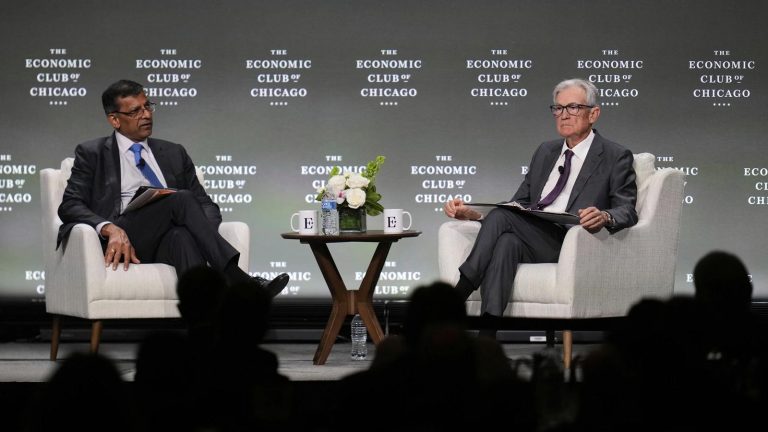
Canada Fights Back: Retirement Relief Amid U.S. Turmoil | Image Source: www.ctvnews.ca
OTTAWA, Canada, April 7, 2025 – Prime Minister Mark Carney presented on Monday a series of measures to protect Canadian retirees from the effects of an ever-increasing global financial storm in a bold political move highlighted by economic urgency. With the renewal of U.S. President Donald Trump’s tariff rattling markets and growing fears of an imminent U.S. recession, the Canadian Liberal government has attempted to position itself not only as a stabilizer, but as a proactive advocate of pension security, national sovereignty and economic resilience.
Carney’s announcement – made in the context of the fall in stock markets and strategic points – aims to provide concrete and short-term financial assistance to older people. The center? A temporary 25% reduction in mandatory minimum withdrawals from Registered Income Funds (RRIFs), giving older people more room to breathe into managing their economies in the midst of volatility. At the same time, a one-year and 5% increase in the Guaranteed Income Supplement (GIS) for low-income seniors promises an additional $652 without taxes. These interventions, as Carney said at a national press conference, reflect an acute awareness of the anxiety of the pensioners concerned.
“The seconds are naturally anxious for their savings,” said Carney. “President Trump’s tariffs are destroying the global economy, and we will not let Canadian pensioners bear the burden of this chaos. »
According to The Globe and Mail, Carney is making a direct appeal to voters by framing the Liberals as the only party equipped to navigate external economic shocks while protecting domestic interests.
What exactly is the Liberal government proposing?
Specifically, these measures include:
- RRIF Withdrawal Reduction: A 25% cut to the minimum withdrawal requirement from RRIFs for one year.
- GIS Boost: A 5% increase in the Guaranteed Income Supplement for one year, tax-free, equating to as much as $652 for eligible seniors.
These initiatives aim to provide immediate relief of cash flows and long-term financial stability to older persons. According to Investing.com, shares are seen as essential counterweights to market instability caused by Trump’s trade policies. The logic is clear: with pressured stock values and volatile interest rates, pensioners – many of whom depend on investment income – need more flexibility, not less.
Why is the world economy in Turmoil?
The instability is mainly due to the renewal of American protectionist measures. As CTV News said, Trump doubled with tariffs, particularly against China, exacerbating trade tensions and causing a sharp decline in US stock markets. Trump’s unpredictability has made financial forecasts more difficult and has led to a capital flight in certain sectors.
“These rates are a massive distraction,” Conservative leader Pierre Poilievre said during a campaign stop in British Columbia. “They remind us why it was a mistake for the Liberals to make us so dependent on the Americans over the last decade.”
While Poilievre lays blame squarely at the feet of both Trump and the Liberals, Carney’s administration is focusing on actionable solutions—at least in the short term.
How do opposition parties react?
The conservative response, led by Poilievre, presents an alternative roadmap for the elderly. Among the proposals:
- RRSP Withdrawal Age Delay: A plan to delay mandatory RRSP withdrawals by two years.
- Increased Work Allowance: A promise to raise the tax-free earnings limit for working seniors by $10,000, potentially saving $1,300 annually for those earning around $34,000.
Poilievre defined these policies as part of a broader commitment to autonomy and domestic growth, in particular through accelerated resource development. According to Firstpost, the Conservatives promised to accelerate major energy projects such as LNG Canada’s Phase 2, arguing that energy independence is the best cover against foreign-induced economic instability.
What is the general economic context?
The debate on the benefits of seniors is taking place among important questions about Canada’s economic trajectory. Mark Carney, a former central banker, warned that the risk of an American recession “has greatly affected,” according to CTV News. In a television interview, he noted that the spill in Canada could be significant, affecting jobs, investment and consumer confidence.
“If the United States does not lead, Canada will,” said Carney, an undisputed jab in Trump’s isolated policies. “Our job is to protect Canadians from the consequences of bad decisions made outside our borders
This statement marks a strategic positioning of Canada as a leader in values-driven, economically prudent governance—especially important during election season.
Is that just electoral rhetoric?
Although the announced policies may generate electoral motivation, the Carney Liberals have just launched campaigns in British Columbia, but they are unprecedented. The relief of a similar withdrawal of RRIF was introduced during the VOCID-19 pandemic in 2020. This ensures policy continuity and a practical context.
Critics argue, however, that these are temporary arrangements that do little to address the long-term structural problems of Canada’s pension system, such as inadequate pensions and excessive reliance on private savings. However, faced with immediate market shocks, even short-term relief can be a powerful tool for political messaging and practical financial security.
How do voters react?
The feeling of voting, especially among older people, seems to be changing. According to the voting data cited by Yahoo News, public opinion suggests a race of hardening between liberals and conservatives. The liberal strategy now seems to focus on the turn of the Green and NDP marches, evident at the stops of the Carney campaign in the Saanich-Gulf Islands, a fortress of the Green Party for a long time.
During a campaign, Carney highlighted conservation and biodiversity, promising to create 10 new national parks and marine conservation areas and to make existing parks open during the summer. It is a call to progressive voters, abundant fiscal prudence with environmental administration.
“We need to be able to do more than one thing to the government at a time,” said Carney, a subtle contrast, but highlighted what he describes as the Conservatives’ unique approach to deregulation and resource extraction.
What’s next for Canada’s rights?
For many seniors, the way forward will depend on the results of the next federal election. Carney promising immediate financial support and Poilievre offering structural budgetary changes, pensioners face two divergent visions. Both respond to the same pressures, the same falling markets, global uncertainty and the elderly, but their solutions vary according to tone and timing.
Meanwhile, Jagmeet Singh and NDP focus on housing, a key issue for multi-generational households. Singh’s $16 billion promise to build three million households by 2030 introduces a long-term vision of infrastructure, indirectly aimed at reducing the financial pressure on families that support children and older parents.
The thread between all parties is the recognition that Canada’s economic stability – and by extension, the well-being of its retirees – cannot be granted. Today’s decisions will resonate for years to come, especially as the dynamics of global power continue to change.
For the time being, however, the actions of the Liberal government provide immediate relief to people with fixed incomes. In a year of uncertainty, even modest repentance can offer a welcome sense of control. According to Investing.com, these movements can also be seen as part of a broader strategy to recalibrate Canada’s economic alliances and reduce the increasingly unpredictable dependence of the United States.
Our elders gained their peace of mind, concluded Carney in his statement. “They should not have to choose between food and safety because of foreign tariffs
Whether voters agree with this approach—or prefer the tax reforms proposed by the Conservatives—will become clearer in the months ahead.



